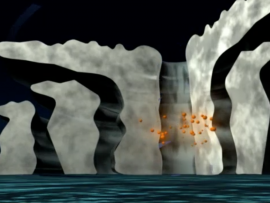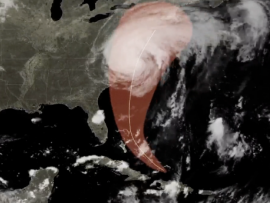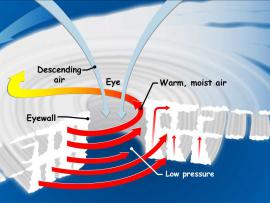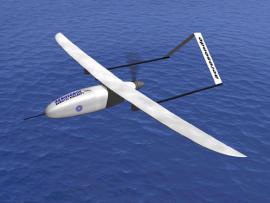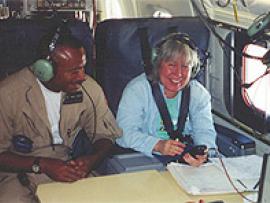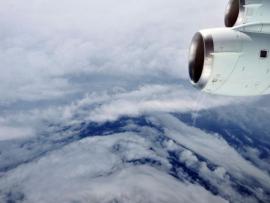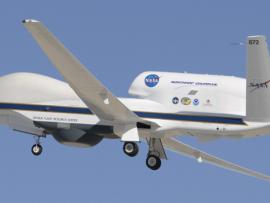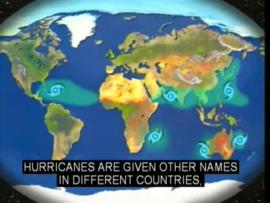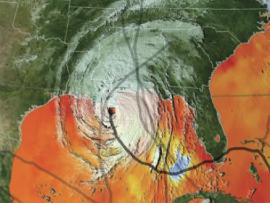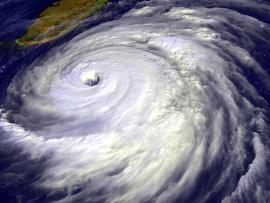Advanced Search
Advanced Search
Your search gave back 30 results.
Primary Topic:
Subtopics:
Type:
Keywords:
Summary:
How do hurricanes get their energy? NASA hurricane scientist Dr. Jeff Halverson explains how hurricanes draw energy from the ocean surface.
Primary Topic:
Subtopics:
Type:
Keywords:
Summary:
Hurricane Irene's impact in New England shows that tropical cyclones can greatly affect regions outside the view of TRMM. The GPM mission will build upon TRMM's legacy by examining a larger swath of Earth with more sensitive instruments.
Primary Topic:
Subtopics:
Type:
Standards:
Keywords:
Summary:
Hurricanes are the most awesome, violent storms on Earth. People call these storms by other names, such as typhoons or cyclones, depending on where they occur. Whatever they are called, tropical cyclones all form the same way.
Primary Topic:
Subtopics:
Type:
Keywords:
Standards:
Summary:
This website explores the technologies used to study and understand tropical cyclones.
Primary Topic:
Subtopics:
Type:
Keywords:
Summary:
This month's NASA Earth Explorer explains what it's like to be face-to-face with one of nature's most powerful storms.
Primary Topic:
Subtopics:
Type:
Keywords:
Summary:
During the 2010 hurricane season, NASA deployed its piloted DC-8 and WB-57, and unmanned Global Hawk aircraft, arming hurricane researchers with the information needed to predict the growth and intensification of hurricanes.
Primary Topic:
Subtopics:
Type:
Keywords:
Summary:
NASA will dispatch two unmanned aircraft equipped with specialized instruments high above tropical cyclones in the Atlantic Ocean basin. These "severe storm sentinels" will investigate the processes that underlie hurricane formation and intensity change.
Primary Topic:
Subtopics:
Type:
Keywords:
Summary:
This NASA video segment explains the formation of hurricanes. Go behind the scenes with a meteorologist at the Weather Channel in Atlanta, Georgia to learn how scientists predict hurricanes and hurricane formation.
Primary Topic:
Subtopics:
Type:
Keywords:
Summary:
In this activity, students are tasked with conducting an Earth systems analysis of Hurricane Katrina that will help answer the question "Is global warming causing an increase in hurricane frequency and intensity?"
Primary Topic:
Subtopics:
Type:
Standards:
Keywords:
Summary:
Teaches about what a tropical cyclone is, and how "Hurricane", "Typhoon", and "Cyclone" are all different words for the same phenomena.


